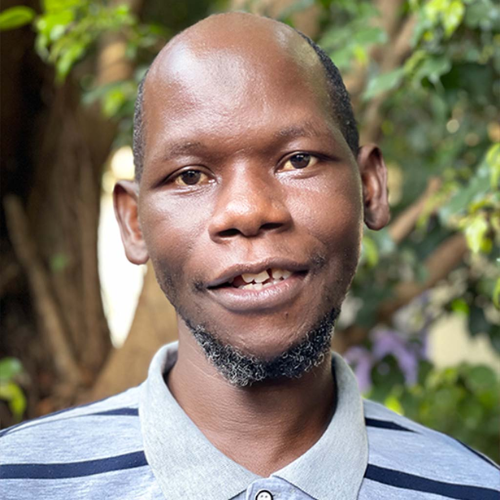Hassan Mululusi est un enseignant et un activiste qui travaille actuellement avec l’organisation « Raising Voices ». Il est titulaire d’une maîtrise en gestion des ressources humaines de l’Université islamique d’Ouganda. En tant qu’enseignant dans une école secondaire, il a participé au développement de la boîte à outils « Good Schools » avant de rejoindre Raising Voices en 2012. A Raising Voices, il a réalisé plusieurs projets dans diverses régions de l’Ouganda, notamment l’élimination de la violence en milieu urbain à Kampala (Raising Voices et Plan International, 2012-2014), Good Schools Randomized Controlled Trial Study – Etude sur « Good Schools » à travers un groupe de contrôle aléatoire (2012-2014) et le projet « 1 000 écoles » financé par Safe To Learn (2018-2019/2020).
Résumé de l’intervention
Titre de l’intervention
Promouvoir une education de quallité par l’implementation de l’instrument scolaire des bonne écoles (GST), l’experience de l’Ouganda
This presentation aims to share insights, lessons, and recommendations for a whole-school intervention-the Good School Toolkit (GST). These insights are derived from over a decade of implementation and learning from GST in Uganda. The presentation will focus on unpacking the GST model, sharing lessons learned and recommendations for future implementation. It details how the model works, the key stakeholders and offers recommendations for effective implementation of similar whole school interventions. Background: The Good School Toolkit is Raising Voices’ flagship methodology for preventing violence against children in schools. It is a school-wide intervention that aims to change the child’s experience of school “operational culture”. The Toolkit objectives are three-fold i.e., to increase learners’ confidence and success; to create a safe and respectful learning environment; and to strengthen school administration responsiveness to the needs of stakeholders. In broad terms, the GST aims at helping teachers and school administrators to create a violence-free learning environment, where children feel safe to explore their full potential-develop their skills, talent and confidence and become constructive, creative, and thoughtful members of their community. The toolkit consists of colourful and accessible learning materials that prompt ideas on a range of activities for learning about gender, sexuality, disability, positive discipline and creating violence-free classrooms. The learning process involves the whole-school-approach (entire school and its surrounding community) who jointly reflect on 3 learning questions about a good school -What is a good school, what is a good teacher, and how can students learn to participate? Experience: Between 2012 and 2014, Raising Voices undertook a Randomized Controlled Trial in 42 schools with a view to evaluate the effectiveness of the GST in preventing violence, improving educational outcomes, and improving the school environment for children attending Primary Schools in Uganda. In 2018, another RCT was conducted to support adaptation of the GST to secondary schools. Currently, about 1000 primary and 500 secondary schools are implementing the original and adapted versions of the GST, as we anticipate a more versatile version, the “GST Agile”. Discussion: Changing the school’s operational culture is essential to create safe learning environments, promote gender equitable leadership opportunities, and enhance learners’ experiences of their school. A more positive school culture can support parental and community engagement in reducing violence.

